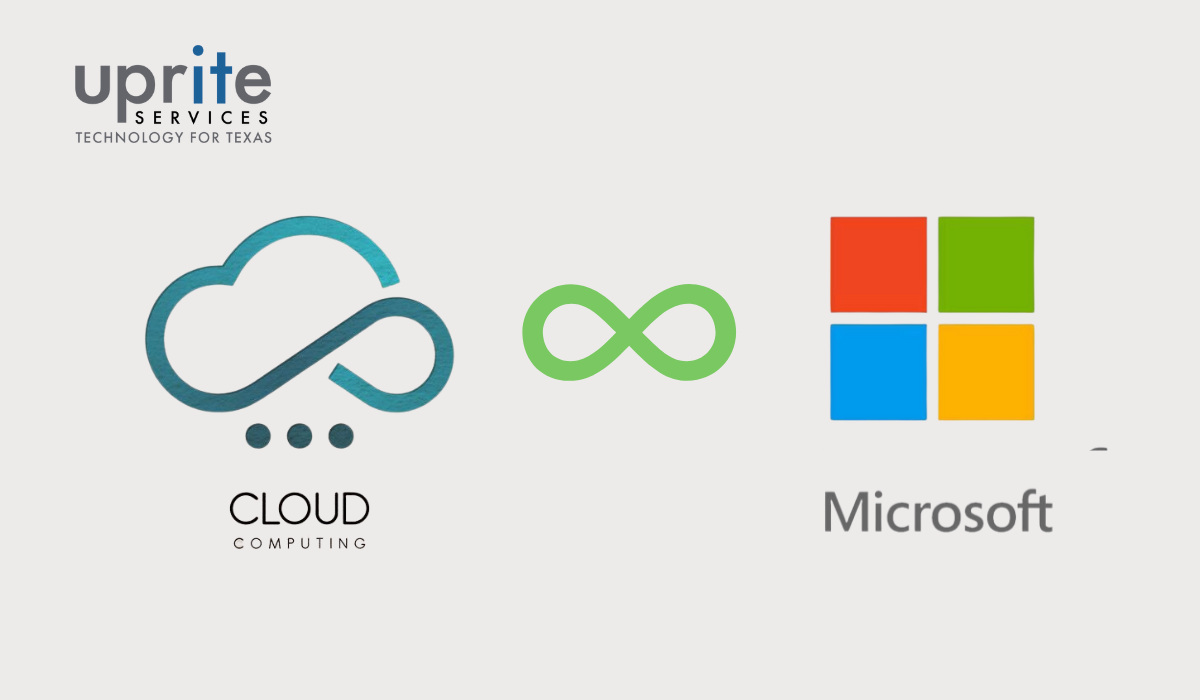
Cloud computing is the delivery of computing services such as servers, storage, databases, networking, software, analytics, and intelligence over the internet. Cloud computing offers many benefits for businesses of all sizes and industries, such as scalability, flexibility, cost-effectiveness, security, and innovation. However, to fully leverage the power of cloud computing, businesses need to integrate their cloud services with their existing systems and applications. This is where Microsoft integrations come in handy.
Microsoft integrations are solutions that enable businesses to connect their cloud services with their Microsoft products, such as Office 365, Dynamics 365, Azure, Power Platform, and more. Microsoft integrations help businesses to streamline their workflows, automate their processes, enhance their collaboration, and improve their decision-making. In this article, we will explore how cloud computing and Microsoft integrations can boost your productivity and efficiency in the following ways:
1. Drive efficiency through automation and AI
One of the key advantages of cloud computing is that it enables businesses to automate their tasks and processes using artificial intelligence (AI) and machine learning (ML). Automation and AI can help businesses to reduce human errors, save time and resources, optimize performance, and increase customer satisfaction. .
Microsoft integrations allow businesses to access leading AI and automation capabilities directly in their business workflows and empower developers to use those same intelligent building blocks to deliver their own differentiated experiences. For example, Fashable, a technology startup in Portugal, is using Azure Machine Learning to reduce “fast fashion” waste by forecasting customer interest in computer-generated fashion designs before ever touching a sewing machine.

2. Improve operational efficiency with cloud-based solutions
Another benefit of cloud computing is that it helps businesses to improve their operational efficiency by reducing costs, simplifying endpoint management, securing infrastructure, and scaling computing resources. Cloud computing allows businesses to pay only for what they use, avoid upfront capital expenses, and lower maintenance costs. Cloud computing also enables businesses to manage their endpoints, such as PCs, laptops, tablets, and smartphones, from a single cloud-based console, regardless of their location or device type. Cloud computing also provides businesses with robust security features, such as encryption, firewalls, identity and access management, and backup and recovery. Cloud computing also allows businesses to scale their computing resources up or down according to their changing needs and demands.
Microsoft integrations help businesses to improve their operational efficiency with cloud-based solutions that are compatible with their Microsoft products. For example, Windows 365 is a cloud-based operating system that allows users to access their personalized Windows experience from any device, anywhere.

3. Enhance collaboration and communication with cloud-based tools
Cloud computing also enables businesses to enhance their collaboration and communication with cloud-based tools that allow them to work together in real-time, share files and documents, and stay connected across devices and locations. Cloud computing also fosters innovation and creativity by allowing businesses to access a variety of tools and platforms that can help them create, design, and develop new products and services.
Microsoft integrations help businesses to enhance their collaboration and communication with cloud-based tools that are integrated with their Microsoft products. For example, Microsoft Teams is a cloud-based platform that allows users to chat, call, meet, and collaborate with their colleagues and customers.

4. Improve decision-making with cloud-based analytics and insights
Cloud computing also helps businesses to improve their decision-making with cloud-based analytics and insights that allow them to collect, store, process, and analyze large amounts of data from various sources. Cloud computing also enables businesses to leverage AI and ML to generate actionable insights, predictions, and recommendations that can help them optimize their strategies, operations, and outcomes.
Microsoft integrations help businesses to improve their decision-making with cloud-based analytics and insights that are integrated with their Microsoft products. For example, Power BI is a cloud-based business intelligence tool that allows users to create and share interactive dashboards and reports that visualize their data and insights.

5. Increase customer satisfaction and loyalty with cloud-based customer service
Cloud computing also helps businesses to increase their customer satisfaction and loyalty with cloud-based customer service that allows them to provide personalized, timely, and consistent support to their customers across channels and devices. Cloud computing also enables businesses to use AI and ML to enhance their customer service with chatbots, sentiment analysis, natural language processing, and speech recognition.
Microsoft integrations help businesses to increase their customer satisfaction and loyalty with cloud-based customer service that are integrated with their Microsoft products. For example, Dynamics 365 Customer Service is a cloud-based customer service solution that allows users to manage and resolve customer issues, track customer feedback, and improve customer retention.

6. Boost innovation and creativity with cloud-based development tools
Cloud computing also helps businesses to boost their innovation and creativity with cloud-based development tools that allow them to create, test, and deploy new applications and solutions faster and easier. Cloud computing also enables businesses to use AI and ML to enhance their development tools with code generation, code analysis, code completion, and code testing.
Microsoft integrations help businesses to boost their innovation and creativity with cloud-based development tools that are integrated with their Microsoft products. For example, Visual Studio Code is a cloud-based code editor that allows users to write, debug, and run code from any device, anywhere. Visual Studio Code also integrates with Azure, GitHub, and other services to provide a rich and productive development environment.
See related: Cloud Services San Antonio.

7. Enhance security and compliance with cloud-based governance tools
Cloud computing also helps businesses to enhance their security and compliance with cloud-based governance tools that allow them to monitor, manage, and protect their cloud resources and data. Cloud computing also enables businesses to use AI and ML to enhance their governance tools with threat detection, risk assessment, policy enforcement, and compliance reporting.
Microsoft integrations help businesses to enhance their security and compliance with cloud-based governance tools that are integrated with their Microsoft products. For example, Azure Security Center is a cloud-based security management service that allows users to strengthen their security posture, protect their cloud resources, and comply with regulatory standards. Azure Security Center also integrates with Office 365, Dynamics 365, Power Platform, and other services to provide a comprehensive and consistent security solution.

8. Increase agility and flexibility with cloud-based hybrid solutions
Cloud computing also helps businesses to increase their agility and flexibility with cloud-based hybrid solutions that allow them to combine their on-premises and cloud resources and data. Cloud computing enables businesses to use AI and ML to enhance their hybrid solutions with data integration, data synchronization, data transformation, and data analysis.
Microsoft integrations help businesses to increase their agility and flexibility with cloud-based hybrid solutions that are integrated with their Microsoft products. For example, Azure Arc is a cloud-based hybrid service that allows users to extend Azure management and services to any infrastructure, anywhere. Azure Arc also integrates with Windows Server, SQL Server, Kubernetes, and other platforms to provide a unified and consistent hybrid experience.

Conclusion
Cloud computing and Microsoft integrations are powerful tools that can help businesses of all sizes and industries to boost their productivity and efficiency. By integrating their cloud services with their Microsoft products, businesses can benefit from the best of both worlds and achieve their business goals faster and easier. Cloud computing and Microsoft integrations can help businesses to drive efficiency through automation and AI, improve operational efficiency.
If you are looking for a reliable and trusted IT partner to help you with your cloud computing and Microsoft integration needs, look no further than Uprite IT Services. Uprite IT Services is a Texas-based award-winning managed IT services provider that has been empowering businesses with secure, proactive, and responsive IT solutions for over 20 years. Uprite IT Services offers a range of services, such as managed IT services, cybersecurity, cloud services, Microsoft integrations, and more.

Stephen Sweeney, CEO of of Uprite.com, with 20+ years of experience brings tech and creativity together to make cybersecurity simple and IT support seamless. He’s on a mission to help businesses stay secure and ahead of the game!


